12 Years a Slave (2013)
/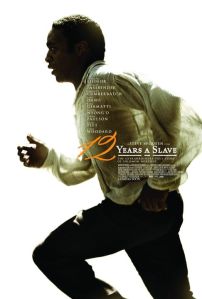
(spoilers ahead, even if the movie only has few surprises, since the title tells you most of it, but I will discuss almost every scene of it)
12 Years a Slave is an extremely powerful movie. It doesn’t let you off the hook in showing you what slavery was like. And you have to keep in mind that the protagonist, Solomon Northup (Chiwetel Ejiofor) was probably better off than the average slave. He had some opportunities because of his education and he didn’t die as a slave. But despite that relatively narrow focus, the movie manages to give a realistic portrayal of slavery. I found the film very impressive, especially the way it was directed by Steve McQueen. I had seen Shame and was impressed by it too but I didn’t feel an emotional connection to it. 12 Years a Slave goes straight to the heart by its sheer force of filmmaking and I appreciate that a lot. Every aspect of the movie – the acting, the music, the script, the cinematography, the editing, the production and costume design, the sound design – is not just a showcase for talent but actually increases the emotional impact of the movie.
I think the movie warrants a deeper analysis than any movie I wrote about before but I still want to focus on an analytical aspect that (again) serves to give a better understanding of our culture because, well, that’s what I do.
The movie deals with slavery and in a larger sense with racism but I want to broaden that scope even more and take a look at power and authority (the masters), both in what it means for people who have power and the ones who have to follow their authority (the slaves). Much of my analysis is inspired by J. Zornado’s excellent work Inventing the Child, which argues that our culture tells our children that they are only what their parents tell them, that we try (and often succeed) to invent the children’s identity through the power we have over them. I find that very convincing and agree with him that it goes beyond parent-children-relationships and can more equally be seen in the relations between dominating cultures vs. dominated cultures, for example in the relation between masters and slaves.
The consequences of detachment-style parenting not only impact and structure the individual’s reality, but the culture’s reality as well. Those cultures that have practiced a particularly intense version of detachment-style parenting—as did the seventeenth-century Puritans in America and the nineteenth-century Germans in Europe (all of which will be discussed in some detail later)—soon after enacted or allowed to be enacted genocidal practices that, to have occurred on as massive a scale as African slavery, colonialism, and the Jewish Holocaust required an adult “social subject” well acquainted with, and in fact informed by, an ideology of domination and subjugation that did not appear to be anything other than normal and obvious. This is not to say that there were not individuals who protested and worked against these atrocities. Rather, this is to say that the culture from which genocidal practices spring must first be practicing the rudimentary ideologies required on a wide scale in its human relationships—in its child-rearing practices primarily—in order to bring to fruition such massive horrors.
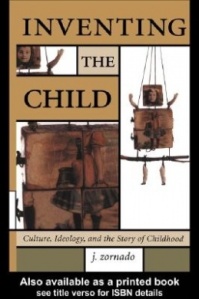
I guess that’s enough of a theoretical foundation. Now there is no turning back (for me at least, you can always stop)!
Solomon Northup is a black free man living New York who is kidnapped and sold into slavery. That’s the basic premise. After Solomon wakes up in chains, he tries to tell his captors that he is a free man. They react by trying to give him a new identity. They tell him that he is not the one he thinks he is, that he is a runaway slave. When he still resists, they use violence to bend his mind, explicitly connecting the beating to the question of his identity. The nudity of the slaves in the following and later scenes underlines the idea that their identities are exposed to their masters to change them at their will. On the boat and the port, some are not just chained but also their mouths are locked, taking away their ability to speak. When they are picked up at the port, the slave trader Freeman (Paul Giamatti in a great small role) slaps Solomon when he says his name is not Platt, reminding him of his new identity. On the first plantation, Solomon and the others have to clap their hands to the rhythm of “Run, Nigger, Run”, basically dominating themselves by supporting their masters in their domination. The dominating identity here crawls into its subjects, applauding their own self-denial.
At the slave sale Ford (Benedict Cumberbatch) attempts to buy Solomon and Eliza (Adepero Oduye). When she starts crying and screaming because she will lose her children (after he made an attempt to buy the children too), look at his face. He has to suppress his emotions to get through the situation but it is hard for him. He knows it’s wrong but he still has been taught that this is how things work and there can be no doubt. All the doubts he may have are silenced by his religion. He gives sermons to his slaves, believing he is doing God’s work, actually helping them. The first sermon uses “Run, Nigger, Run” in the background, the second is accompanied by Eliza’s crying. The hypocrisy of using religion as a justification could not be made clearer by this brilliant combination of different layers of sound. Ford’s wife tells Eliza that she needs “something to eat and some rest. Your children will soon be forgotten.” She knows what she’s talking about since she also has forgotten that we care about other human beings and that it is natural to cry for the loss of your children. Her generosity is only superficial and has nothing to do with real emotions.
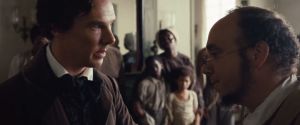
One of the masters at Ford’s plantation is Tibeats (Paul Dano as another extremely unpleasant character) and he enjoys being cruel to the slaves, mocking and insulting them with his song. But he is clearly not a happy person. Instead, it feels like he is suffering. He thinks he enjoys having power but again, it only works if you suppress your emotions. This becomes even clearer when it shows that he feels threatened by Solomon. Not because Solomon doesn’t follow his orders, but because he’s far more intelligent than Tibeats, which grants him some power that Tibeats will never get. He is caught between being superior as a master and being inferior as a human being and it drives him crazy because he doesn’t really fit into his own binary worldview.
Solomon’s second master Epps (Michael Fassbender in an unforgettable performance) is introduced in all his hypocrisy and sickness. After a hard cut, we step right into one of his sermons in which he repeats almost every sentence to emphasize that there is nothing more important than a slave obeying his master and that disobedience will result in violence. He radiates intimidation and fear but at the same time something is off with him which could either be his alcoholism or his inner struggle with himself, as seen in the triangle he is caught up between his wife and his favourite victim Patsey (Lupita Nyong’o). The latter conflict is what the movie focuses on but it really still is an inner struggle. McQueen juxtaposes Patsey and Mrs. Epps (Sarah Paulson) in two shots that represent Epps’ psyche. On the one hand there is Patsey, sitting in a green field with white flowers and white puppets, her brown skin distinguishable from the scenery, singing and creating dolls. On the other hand there is his wife watching Patsey, standing high above on a balcony in a shot that’s basically black and white. His desire and lust for something different and exotic versus his emotionless position in society as the authority of the plantation. Again, it confuses him and so he (ab)uses his power to get what he desires, thereby spoiling it. He rapes Patsey and beats her up while feeling an obvious affection for her that does not fit to his abuse. I wouldn’t say he has good intentions but his desire is real he only has never learned how to deal with this except by using people like objects. He lets his slaves dance at night like string puppets, clapping and hopping along like a child (or, as it is, like a drunk). When Solomon openly disobeys him, he chases him, falls down and lets him go, as if it’s a game. A deadly game, but still a game. After he rapes Patsey, he slaps her and seems to try to strangle her out of anger and confusion. He has learned to hate himself for this desire but the desire is so strong that he also hates himself for hurting her. When he welcomes his slaves who come back from a trip, he walks around the plantation with no pants on and a little girl on his hand, whom he carries around to “find something sweet for [her].” It’s disturbing and creepy but it reinforces his inner workings.


And then there is the whipping scene. First there is a 2-minute-shot that shows Patsey desperately trying to appeal to his empathy. We hardly see his face but when we do it looks vulnerable for a second before hardening himself to punish her. Then follows a 4-minute-shot with no cuts of her being whipped, surely the most haunting and relentless scene in the movie. Epps first tells her “You’ve done this to yourself.” again rejecting his own guilt and retreating to his authoritative self. But holding the whip in his hand, he cannot do it, his face with an expression even more vulnerable than before, the inner struggle as visible as can be, continuing for 15 seconds in which we hear Patsey’s crying (his hidden emotional self) and his wife cheering him on to kill her (his dominating power self). Since he has not learned to find a way out, he escapes by forcing Solomon to do it (which he does, more on that later) but after a long time takes it back and finishes her in an extremely graphic moment that will evoke nightmares in its audience. Solomon again stops him by talking about sin and Epps stops and replies: “Sin? There is no sin. Man does how he pleases with his property. At this moment, Platt, I’m of great pleasure. You be goddamn careful I don’t come wantin’ to lighten my mood no further.” He is relatively calm when he says that, free of his previous struggle. And that’s the pleasure he is talking about, not actual happiness of mutilating a woman, but being back where he thinks he belongs, in the world where people can be property and masters can do as they please as long as it makes the hierarchy clear. He is back where society wants him to be and in that moment, after he executed his power to the fullest, it feels right and good again. As if he whipped himself free of his struggle but also of his remaining emotions. By finally reducing Patsey to an object, to property, he also gets rid of his feelings for her as a human being.

Let’s take a look at the ones who have to obey their masters. After their initial boat trip, Clemens (Chris Chalk), whom Solomon had befriended, is freed by his master who claims him back. Look at this moment. Solomon is disappointed because despite their solidarity, Clemens does not even try to help him anymore, just hugging his master like a child. This very visible subjugation must make the viewer feel uncomfortable. He is so ready to become a “property” again, to go with his master instead of being sold to a different master; it’s an unpleasant sight and a very clever choice by McQueen. Especially since it is then connected to a flashback in which we see the old Solomon shopping groceries when a house slave comes into the store and is called back by his master. Solomon generously allows the slave to stay but doesn’t react at all once the slave is gone. Solomon here is basically on the same level as the slave’s master and while he is friendly to him, he also doesn’t care about the problem. This scene shows so well that racism is not the issue. Solomon had power in the past just like his white neighbors but didn’t act on it to do something for his race.
When Solomon washes a boy who wants his mother, he tells him to be silent, showing him how the game works. Repress your feelings, do as asked if you want to survive, which on the one hand is a reasonable tactic, but also comes with a prize. Solomon, throughout the movie, struggles between keeping silent and rebelling against his masters, but both alternatives often end horribly. He later has a discussion with Eliza who can’t stop crying for her children. He argues that she must control her emotions to survive while she argues that if she would suppress them, she would accept her identity as a slave. This conversation represents how well the movie shows two sides of arguments without ever giving an easy answer. Who is right in this conversation? At the end of it, Solomon just stands there and it’s clear that he doesn’t know himself if he is right. Eliza claims she doesn’t want to accuse him of anything; she just wants to show her emotions. But Solomon already has learned to suppress them (and since he had been a powerful black man before, maybe he had to learn that early on) and does not know what to say. When she is taken away later (because Ford’s wife can’t have “this kind of depression”), he again remains passive despite her cries for his help. Afterwards, though, he struggles for a second with his food before continuing as you can see him overcoming his doubts (or emotions) to go on.
But in the very next scene he does protest openly. Tibeats basically ignores everything he told him before, but Solomon declines before they get into a fight which ends with him beating up Tibeats. Again, that crucial scene leaves the viewer in an uncomfortable place. We want to cheer for Solomon for acting against his cruel master but the long shot after that triumph makes it uncertain what it means for Solomon. Maybe they will kill him now, maybe he achieved something. Again, there are no easy answers here and it’s not just a matter of protesting or keeping still. The next scene increases that feeling. Tibeats and two men come to lynch Solomon, the music is harsh and disturbing, and the scene is hard to watch. He is saved or at least we think so, but Chapin (J.D. Evermore) leaves Solomon on his toes, basically on the edge of being strangled. Then follows an amazing 1.5 minute shot of Solomon hanging there while slowly the plantation life around him continues, meaning no one comes to rescue him but everyone just does what they always do. This could be interpreted in two ways: 1) slavery is so normal that another lynched man is just daily business even to slaves themselves (as Josh Larsen explains it) or 2) everyone else knows that keeping to themselves makes it easier not to be the one hanging from a tree, going back to the question of keeping silent or speaking up. And again this long shot makes us feel uneasy – on the surface because it’s tough to see our protagonist almost dying without any help but what is really uncomfortable is the thought that maybe the others have a good reason to ignore him. Our society makes such a supposedly easy choice a difficult one. Apart from the effective long take, the following shots emphasize this: Chapin walking up and down the patio, children playing behind the struggling Solomon, Ford’s wife being distressed about that sight, a shot from far away that makes Solomon appear as part of the scenery. It’s getting dark when Ford finally comes and saves him and the next shot could make us feel good for a second as it shows Solomon on a pillow inside the house (ah, they’re good people after all!) but on the floor and it’s not long until Ford comes and throws him out to protect himself (oh well). He actively chooses to ignore Solomon talking about his past and justifies selling him to another master, who is known as a “nigger breaker” by telling him: “You are an exceptional nigger, Platt, but I fear no good will come of it.” He chooses ignorance because he is too scared of his other self that feels empathy for other people.

Solomon protests against Epps later, running away from him until he trips over a fence. There is no feel of danger here, so Solomon’s rebellion does not feel as brave as it was with Tibeats. Epps is drunk and couldn’t be more pathetic than falling flat on his face after running through a pig sty. During Epps’ dance performances, Solomon keeps quiet and watches as Mrs. Epps disfigures Patsey several times. When Patsey confronts him at night and asks him for help, he again shows no understanding for her feelings, disregarding it as “melancholia”, asking her “How can you fall into such despair?” Just to be clear, he poses that question to a woman who is constantly raped by her master and defaced by his wife, her life clearly a living hell. But he cannot show empathy to her and eventually does not answer her request. But he soon has to realize that despair is right around the corner. His first plan to send a letter home fails and he barely escapes punishment from Epps, sending him into his own despair. When he attends a funeral of a fellow slave, he first does not sing along with the others, just desperation in his face, but he reluctantly joins them, struggling with himself until he breaks into the song with full passion. It’s an exceptional performance in that scene by Ejiofor. But what does it mean for the character? Does he find strength again to fight against his fate? Or does he give in to being a slave for life, only hoping to “go to heaven when I die” as the song goes? In the next scene he meets Bass (Brad Pitt) who will eventually help to save him but is it Solomon’s strong will which saves him or Bass who appears like a gift from heaven?
In the whipping scene Solomon is told to do what Epps can’t do himself. He doesn’t want to but we see that his resistance is not so strong. Once he has the whip in his hand, he does not need more convincing to start whipping her, even if he takes his time. We saw him protest stronger in earlier instances. But he whips her, without a gun to his head or a knife to his throat. Considering how he has treated Patsey before, is there something in him that wants to punish her too? For letting her emotions get the best of her again? Throughout the movie Solomon can’t deal with people who give in to their despair and to him soap is certainly not a reason to risk your life. I’m not saying he enjoys it but he never shows a lot of support for Patsey (or Eliza earlier on). He gives her thirteen lashes before Epps forces him to whip her harder and then seven more times before he gives up. After Epps mutilates her back, Solomon cries out that Epps is a devil and that he will be punished but how much is talking about himself? Afterwards he seems desperate again, speechless at Patsey’s wounds and breaking his violin that was a symbol for his former self.
He then asks Bass for help and gets it. In fact, from that point on, he gets out of his slave life relatively easy despite his visible depression. But when it happens, it goes by fast. The men come to get him and he leaves with them. But right before he gets on the carriage, Patsey calls out to him. You have to wonder what she actually sees in him at this point, since he never actually helped her much with anything, often rejecting her pleas. Nevertheless, there she is, getting a long hug from him before he leaves without another word. Again, no question if she could come along or if they can do something for her, just silence and sad stares. It really does sadden him, this much is clear, but he still doesn’t do anything for her and there is no doubt in his face to show that he actually thought of it. Before she appeared, he was ready to leave without even saying goodbye. When he leaves, behind his face, out of focus, she breaks down with a loud cry which makes it clear that this really might be the end for her.

In the final scene Solomon gets back to his family and it is obviously a heart-breaking moment that had me in tears towards the end. But look at what he is saying. “I apologize for my appearance. I had a difficult time this past several years. […] Forgive me!” His daughter replies: “There is nothing to forgive." But that depends on what he means. Does he apologize for being away for 12 years? Because that was clearly not his fault. Or does he apologize for the things he did in that time? For leaving Eliza and Patsey behind? Does he only cry because he has his family back or also because of the things he has seen in himself, emotions that he didn’t know existed in his former life? It’s impossible to find an answer but I find his last words striking in their ambiguity. Also, as seen throughout the movie, Solomon has a strange relationship to women. He rejects Eliza’s and Patsey’s despair (or feelings) and remains passive when a woman engages him sexually. In the first scene between him and his wife they look at each other until he turns away. Before she leaves, he tells her he will miss her cooking and then she starts kissing him. And in the end he does not go to his wife or says one word to her, which I found to be quite strange. Again, no easy answers.
Three more things: There is one exceptional 30-second scene in which Solomon’s work group encounters a group of Native Americans in the swamps. Their first meeting pictures them in almost exactly the same pose, location and attitude, just in reverse shots as if they are looking into a mirror. They are juxtaposed as the two main groups which were dominated by the Whites but here the Natives appear more free and stronger than the slaves. They share some meat, songs and dancing and then it’s already over. The Natives at least managed to have a little freedom within the tight boundaries the Americans granted them, but the slaves barely had the same freedom. But of course the Natives are different from the slaves in never following this society. The main conflict between them and the Americans was a cultural one as they rejected our society. The slaves might hate their life but what they wish for is being part of the society that enslaves them (even if they might want to change it). It’s a fascinating contrast that could have easily been cut but enriches the movie even more.


The very first shot of the movie shows Solomon among a group of slaves staring at us. It’s an extremely effective first shot because it grabs the audience by its sleeve and says: “Look at us. What do you say?” The shot is basically repeated later. And then there is another compelling shot towards the end that happens between Solomon’s conversation to Bass and his release. We see him alone outside, looking around everywhere, clearly desperate, looking for help and eventually his stare settles on us for a moment before he continues to look elsewhere, as if we weren’t able to help him. I find this kind of direct addressing of the audience very intriguing because it forces the viewer to ask themselves uncomfortable questions.
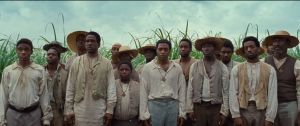
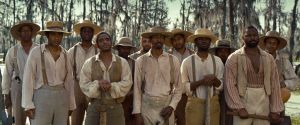

Finally, let’s mention Bass, the Brad Pitt character who eventually saves Solomon. He has been called the archetypal “White Savior” as he does what Solomon is unable to do. And Brad Pitt sure makes a fine candidate to play Jesus anytime soon the way he is depicted here. I would agree with that assumption but I don’t think the issue is race here. Sure, Bass is white but this is not necessarily his defining quality. What defines him is that he lives outside society. He has no steady home or job and his opinion on slavery is the following: “Laws change. Social systems crumble. Universal truths are constant. It is a fact, it is a plain fact that what is true and right is true and right for all. White and black alike.“ This shows his disregard for this society’s laws and underlines his independence. Just to be clear, he not only differs clearly from Epps but also from Solomon who does lead a steady life according to society’s rules. Bass is different and not just a “good white man”, he is good because he is free of the rules that make life terrible for everyone. The biggest difference between him and everyone else in the movie, no matter if white or black, is that he seems happy. He is not going through some inner struggle and instead declares that “My freedom is everything.” He also says that he is scared of helping Solomon but this fear comes from the danger of losing his freedom and maybe of becoming caught up in society’s rules. But he does help him in the end, proving himself to be a really good man, which, according to the movie, only happens when you live outside of this flawed society.

And that’s it. After a bit more than 4,000 words I discussed almost every scene in the movie, which feels good. It took a while but I’m very happy with that analysis which seems more coherent than I would have expected. It is an amazing film that I appreciate even more after going through it again. Steve McQueen is a really thoughtful and fearless director who seems to know exactly what he is doing and who is not afraid of challenging his audience. This is the opposite of a simplistic movie.
As always, I’d love to hear some feedback.

